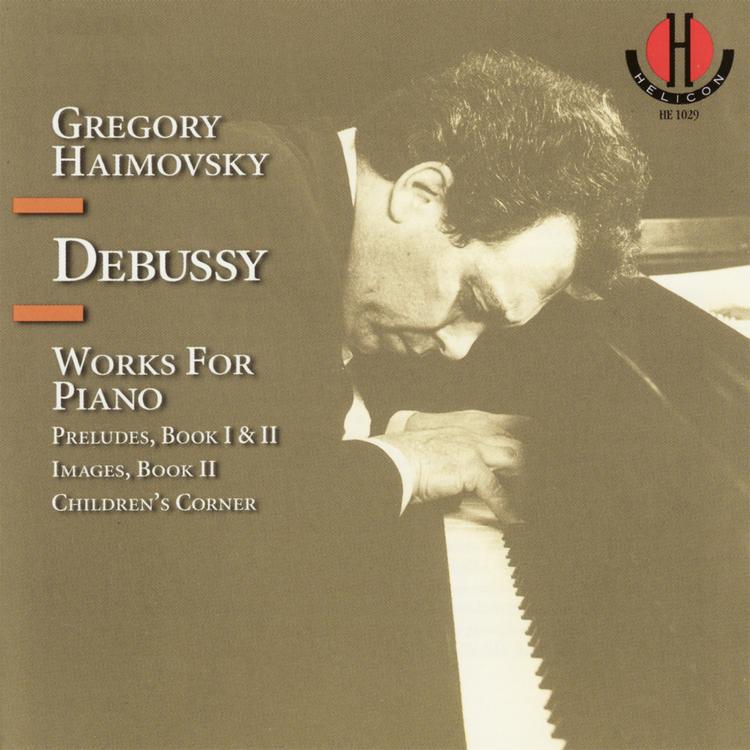
Artist Overview
# Classical
Gregory Haimovsky is a pianist, writer, and pedagogue.He graduated from Moscow Conservatory in 1950.In the era of Stalin's anti-Semitism, like the fate of many of his contemporaries-musicians, Haimovsky’s destiny as a performer was thwarted.Immediately after his graduation concert, despite the formal characterization of the conservatory’s administration noting him as an "extremely gifted pianist, outstanding performing abilities ...," he was kicked out of Moscow by the communist regime to Russia’s remote provinces, where, except for a short period of creative work in Nizhny Novgorod Conservatory, he spent 16 years isolated from concert stages.However, in 1966 Haimovsky returned to Moscow and entered the mainstream of the capital's musical life as a pianist and writer on music and musicians. An expert on French music in particular, Haimovsky was the first to bring to Russian musical culture the works of Olivier Messiaen.From 1966-1972 as a soloist and in collaboration with the best musicians of the capital, Haimovsky premiered Messiaen’s most famous works for the USSR.Among them are: "Quartet for End of Time" (with M. Baranov, V. Tupikin, V. Simon, later recorded by "Melody"), "Visions of Amen" (with I. Katz), "Haravi" (with N. Cherednyakova ), "Three small liturgies of the Divine Presence" (with S. Sandetskis), "Exotic Birds" (with G. Rozhdestvensky), fragments of the works from the "20 Regards of the baby Jesus," "Sketches of rhythm", "Catalogue of Birds".Haimovsky played the solo piano in "Turangalila-Symphony", performed for the first time in Russia by the USSR State Symphony Orchestra (conductor Evgeny Svetlanov).Triumph of "Turangalila" in Moscow (1971) was stunning.For his work Haimovsky received a letter of gratitude from the composer. During this time, Haimovsky published the first articles about Messiaen in “Soviet Music”, receiving considerable attention.In 1968, the publishing house “Soviet Composer” signed a contract with him for the first Russian book on Messiaen.The manuscript was completed in 1970, but was not published due to objections from communist censors. In the late 1960s, Haimovsky's solo-performing, literary career, organizational activities, and pedagogical deliberations significantly expanded when he joined the "Chamber Ensemble of Soloists of Moscow Radio and TV" (directed by A. Korneev).As a forward-thinker in musical activities, Haimovsky became a mediator between the Soviet composers (among them Nikolai Sidelnikov, Alfred Schnittke, Boris Tishchenko, among others) and his chamber group.He inspired Sidelnikov to create a number of masterpieces, which were subsequently performed across the USSR and recorded for "Melodia” label. And yet despite of the heights of this creative work in Moscow, a stifling political environment forced Haimovsky to leave the country (Oct.1972). After his emigration from the USSR, Haimovsky was a professor of Rubin Academy of Music in Jerusalem and soloist of the Israeli Radio Orchestra.He performed with the Jerusalem Symphony Orchestra, in particular the Israeli premieres of Messiaen ("Three Little Liturgies" with Mendi Rodan, "Exotic Birds" with Paul Kapolongo), performed recitals, made recordings on the radio (Chopin, Haydn, Debussy), and concertized in Europe. In 1974, the Tel Aviv newspaper Maariv wrote that Haimovsky is "not only a pianist of supreme virtuosity, but above all an artist with a strong personality."This is seconded by Freiburg’s Badische Zeitung: "He is a magician of sound."Even after moving to the U.S. (in 1977) the first performances by Haimovsky are generally described as "unusual"; specifically, his Liszt and Messiaen as "breathtaking" (New York Times). The 1999 release of his American disks of Debussy's piano music, the American Guide wrote: "Every moment on this recording is a jewel ... the second book of Images is a revelation ... this transcendent performance...joins Benedetti Michelangeli, Gieseking, and Arrau..." Haimovsky received invitations from radio stations for recordings and interviews, particularly in New York, Stuttgart, Jerusalem.Additionally, he has performed in festivals such as “Lyric Art Festival” in Houston and “Russishes Erbe” in Freiburg, and given master classes in the Jerusalem Music Center (under the auspices of Isaac Stern), Istanbul Conservatory, Boston Conservatory, Bard College, and others. From 1984-2001, Haimovsky was a professor of piano, chamber music, and aesthetics of performance at New York University.At the request of the institution, he founded the NYU Chamber Music Society that performed nearly 40 concerts of contemporary music from all over the world.Concerts involved undergraduate and graduate students, university professors, as well as guests from abroad.Upon leaving the university, Haimovsky returned to his second passion: writing.From 2002 to 2012, he published six books in Russian and translated one for English readers, all for Liberty Publishing House. Presently, Haimovsky lives with his wife in his home in Yorktown Heights, Westchester (New York).He continues to work as a writer and as a pianist.